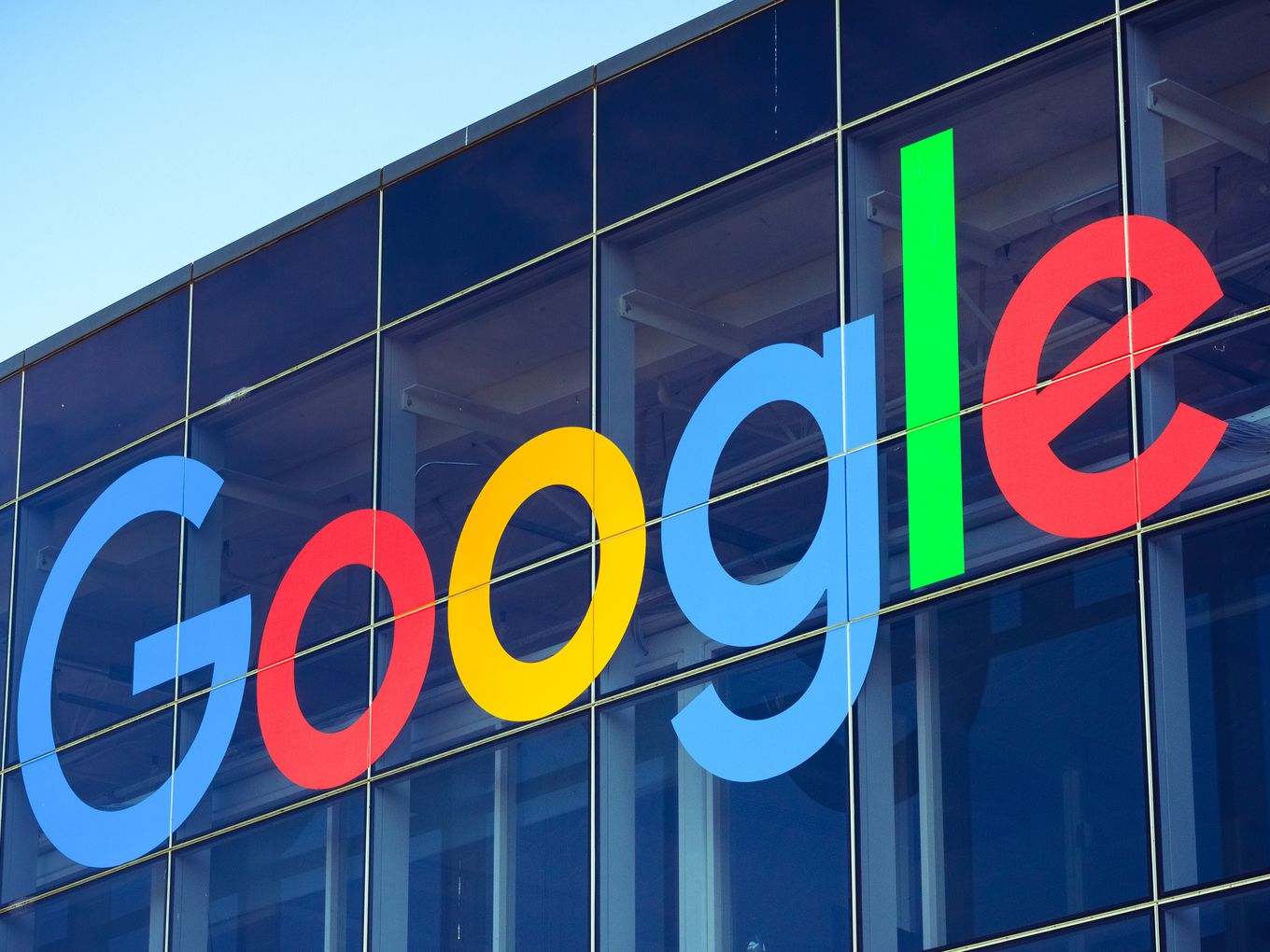SUMMARY
Google India aims to mentor more than 1,000 startups in 2019
Recently, it announced the startups that are part of the second batch of 'Launchpad 'accelerator programme
Google looks at startups across the board without any bias, says Paul Ravindranath G
Soon after setting up an office in Hyderabad in 2015, Google began its journey of collaborating with Indian startups. It was still early days for the Indian startup ecosystem but Google’s first ever startup accelerator programme, Launchpad, later that year saw significant participation from Indian startups.
In less than two years, Google India decided to launch an India-centric accelerator programme, Google Launchpad Accelerator India. The launch of the Indian leg of the accelerator programme in 2018 came at a time its global Launchpad programme had already incubated 26 Indian startups the previous year.
But did Google find what it sought for in Indian startups?
To secure more partnerships with startup stakeholders, Google India set a target of mentoring more than 1,000 Indian startups in 2019. The internet giant has also been running several startup-oriented programmes to promote entrepreneurship at all levels: a mentorship programme for women entrepreneurs, Google Developers’ Launchpad Build, an ambitious programme, called Google Lunar XPrize , aimed at the prospect of lunar transportation as a business for spacetech startups, and a global online science competition, Google Science Fair.
Mentorship is not the only way of Google India’s association with startups. Since 2018, Google has actively started investing in Indian startups as well. This includes delivery service provider Dunzo and fashion ecommerce startup Fynd.
Here’s an insight into the technology major’s startup-oriented initiatives — Google Launchpad Accelerator India and Solve for India to begin with — and how the company views the opportunity in the country’s startup ecosystem:
Solve For India: Mentoring Small Town Entrepreneurs
Through its Solve for India initiative, a mentorship programme for Tier 2 and Tier 3 startups in India, Google wants to engage with at least 10,000 entrepreneurs and developers.
Launched in April 2017, Google Launchpad’s Solve for India programme offers a four-day workshop with in-house and industry experts with the aim of solving the critical product and growth challenges faced by startups. The mentorship programme covers a broad pool of topics such as product strategy, user interface/user experience (UX/UI) design, marketing and technology including Android/Firebase, web and cloud.
In their quest for bringing in and nurturing talents from India, one of Google India’s senior executives, Paul Ravindranath G, and his team travelled across 15 Tier 2 and Tier 3 cities. What added crucial significance to this trip, as Ravindranath recalls, is that he took the journey a year before the company would announce the launch of its India-focussed startup accelerator programme.
He told Inc42 that he met about 3,000 developers with the Google India team, mentoring a total of 160 startups. The multinational search giant later referred to the initiative as the “Solve for India journey”, says Ravindranath, program manager, developer relations and head of Google Accelerator at Google India.
Google Launchpad Accelerator India
After an overwhelming Indian participation in its global startup accelerator programme and the rollout of the Solve For India initiative in India, Google decided to take a more regional approach into the Indian startup industry. In July 2018, the internet giant launched Google Launchpad Accelerator India, a comprehensive mentorship programme tailored exclusively for Indian startups using machine learning (ML) and artificial intelligence (AI) to build solutions for the pressing problems in the country. Comprising 10 startups, the first batch of startups graduated in December the same year.
Google’s three-month startup accelerator programme in India has been designed with an aim to help the startups build scalable solutions for problems specific to the country.
Aimed to groom AI/ML startups through this equity-free programme, this launchpad initiative of Google is an extension of its global Launchpad Accelerator programme which used to take place in the US and wherein startups from various countries would be flown to San Francisco for training and mentorship.
Google operates its global Launchpad accelerator programme in six countries including Chile, India, Japan, Brazil, Israel and an Indie Games Accelerator programme in Singapore.
Earlier this month, Google India announced the startups shortlisted for the second batch of its Launchpad Accelerator programme for India. The startups include Opentalk, THB, Perceptiviti Data Solutions, DheeYantra, Kaleidofin, FinancePeer, SmartCoin, HRBOT, Savera.ai and Adiuvo Diagnostics.
What Google Searches For In Startups
At a time when there are more than 39,000 startups in India, according to an Inc42 DataLabs report, shortlisting startups in India may not be as easy as it could be in other parts of the world.
And what exactly does Google search in Indian startups and at what stage should a startup apply for the programme?
“We look at startups across the board. These startups need not only be on the Google platform. We are stage agnostic and accept startups who are in the seed or growth stage without any bias,” Ravindranath tells Inc42.
For instance, Signzy, a provider of digital onboarding solutions for financial institutions, had attracted a Series A funding before being selected for the Google Launchpad Accelerator programme.
The essential requirement, according to Ravindranath, for startups to be considered for the programme is that they should be vying for mentorship, and should be able to benefit from the expertise that Google provides in areas such as AI/ML, Cloud, UX, Android, web, product strategy and marketing.
Google Accelerator Benefits
Talking about the Google accelerator programme, Jo Agarwal, founder of Wysa, one of the Google Launchpad Accelerator India Class I graduates, tells Inc42, “They first understand your challenges and then they try and find people not just from Google but also from Google’s network to help and mentor you. What is also unique is that while helping us out they make us create our own targets (although they encourage us to keep them high)”.
Life post-Launchpad has been good for Wysa, she says, which prior to Launchpad had about 15K-20K downloads a month and now has 150K-100K downloads a month, a 10 times increase.
“The program also helped with the monetising efforts and we managed to do this without any type of marketing. So, till date, we have zero cost of customer acquisition, we don’t do any marketing or AdWords… We only do optimisation on the app stores especially the Google PlayStore,” tells Agarwal.
Another startup, Genrobotics — which creates robotic solutions to tackle social issues — was developing the commercial version of a robot in the days leading up to the Google Launchpad programme. One of the reasons behind its interest in the Launchpad programme was the AI and ML expertise of Google that would be used in creating a future iteration of its Bandicoot line of robots.
Apart from the obvious benefits, a crucial input that Google helped the startup with was developing the user experience as an end-user of these robots would not be very technically sophisticated. And hence, the startup demanded both simplicity and ease of use.
Google mentored the team work out details such as the size of the controller buttons, the colour of icons and graphical representations.
The startup has its ambitions set on establishing its presence all over India by 2020.
The Push In Tier 2 And Tier 3 Cities
Ravindranath also shares that the 2016 trip to select startups in India also gave the Google team an indication of where to go next.
“Tier 1 ecosystems are growing towards getting saturated in terms of startup support and there are a lot of folks who are going to Hyderabad, Cochin, Jaipur and Chennai, where we will see a new growth in terms of up and coming entrepreneurs,” says Ravindranath, hinting at Google’s intent of exploring the startup world beyond Tier 1 cities.
Ravindranath indicates that the Launchpad program could end up becoming an anchor body around which shorter and subsidiary startup programs could be run such as machine learning boot camps and AI workshops.
“I want to expand the knowledge reach of Google to other startups and programmes, and not just for 10-20 startups in a year,” Ravindranath tells Inc42.
And the plans, according to him, are not only limited to looking at smaller cities but taking the initiative up a notch to international markets as well.
“We are looking for cross-cross-pollination of startup ideas and mentors, we would look to encourage startups exchanges, like for example how Indian startups can get access to Indonesian market while collaborating across Launchpad teams in the respective countries. At present, there are Indian startups that are participating in the Games Accelerator program in Singapore,” Ravindranath explains.
According to ‘the state of the Indian startup ecosystem 2018’ report, India has more than 250 incubators and accelerators, and yet, their impact — to say the least — has been low given the number of startups popping up in the country.
With venture capitalists increasingly participating in the seed-funding rounds of startups, the scope of competition for accelerators and incubators has certainly widened over the last few years. This is why the level of mentorship accelerators bring could be crucial to their chances of bagging promising startups.
Google, says Ravindranath, works with VCs such as SAIF, Matrix Partners and Kalaari Capital in India, and many times they recommend startups to the internet giant.
Google has also partnered with 15 top venture capital firms under what it calls the Sand Hill programme, wherein it works with the likes of Accel, Sequoia, Inventus Capital and Lightspeed Ventures to identify promising late-stage startups.



























